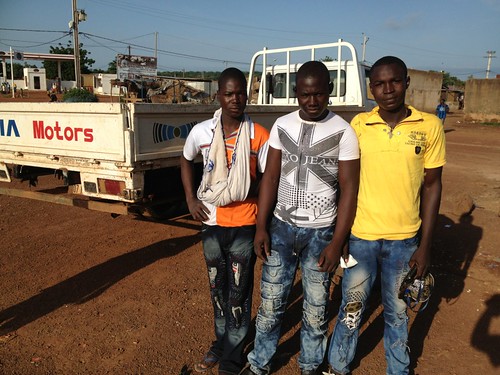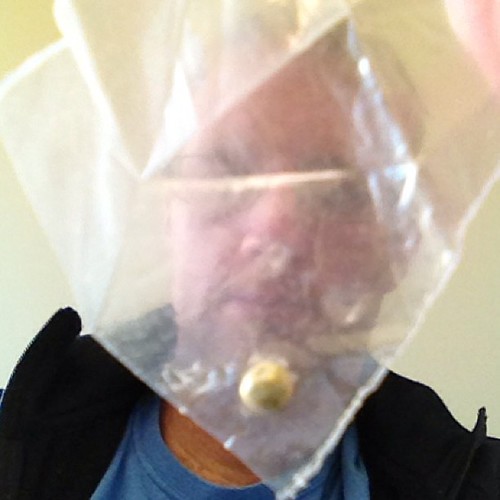Hanging with teenage gold miners in Burkina Faso
(While traveling from Burkina Faso to Ghana in search of the parents of Solo, the slave I met in Ivory Coast, I spent the night conversing with a group of teenage gold miners. I included the experience in an early draft of WHERE AM I EATING? but space was tight, and it just didn’t fit. It seemed more like a sidebar. So, following this morning’s post on when child labor is necessary, I’m sharing it here.)
The bus ride that took me from Burkina Faso’s capital, Ouagadougou, ended at a flooded road and a trip in a tiny dugout canoe where the oarsman joked about crocodiles. From the canoe I got in a cab that didn’t have brakes. The driver stopped the car using the “Fred Flintstone” method – i.e., sticking his foot out the door and dragging it along the road.
We arrived to the town of Poura, Burkina Faso, at dusk. There were no rooms to be had. The proprietor of the town’s only hotel had taken all of the keys with him on vacation. Fortunately, one of my cab co-riders – a man named Karim, decked out in a new hip-hop outfit complete with bling – took pity on me.
“Come with me,” he said
I figured he was relatively rich. Not many in Burkina Faso can afford to dress like he dressed. His bootleg Chicago Bulls baseball cap almost looked real enough to be worthy of the shiny “authentic” sticker still affixed to it.
“In here,” he showed me into his room a hot, dark room, without electricity, in a building that had seven other such rooms.
“Where can I use the bathroom?” I asked.
“Come. I’ll take you to my master’s.”
Master? Oh, no, here we go again.
As it turns out, the boy was a fifteen-year-old gold miner. He worked in his master’s mine and was returning from Ouagadougou where he made a run to sell his master’s gold.
 Karim’s master looked me up and down, and I did my best to not look like a journalist. He offered me the floor of his guesthouse, which I gladly accepted. I stayed up with his child laborers that night and talked about their lives.
Karim’s master looked me up and down, and I did my best to not look like a journalist. He offered me the floor of his guesthouse, which I gladly accepted. I stayed up with his child laborers that night and talked about their lives.
“My parents work in the cocoa fields of the Ivory Coast.” Karim said. “They can’t afford to feed and clothe me so they send me here.”
Karim hadn’t seen his parents in two years. He told me that while he thinks they live near Daloa, that is just an assumption at this point. He has worked here since he was thirteen.
We jammed to a stereo powered by a car battery. There wasn’t a light to be seen in the village — only distant conversations and the sound of animals and humans turning in for the evening.
“What happened to him?” I asked, pointing to the boy playing DJ at the stereo. He held his wrapped and slinged arm tight to his chest.
“This machine at his fingers,” Karim said, nodding to a steel machine on wheels that is used to clean the gold.
“This is gold,” I said, holding out my ring.
“No it is not!”
We argue whether or not my wedding ring was gold.
“If you want, tomorrow you can come [to the mine] to see gold.”
“Uh…wow!” I picture myself standing in a mine staring at child laborers slaving away for tiny pieces of gold. Suddenly my gold wedding band feels a little heavier. “I better not.”
I wanted to seem as disinterested in the workers and the gold as possible. I just wanted to leave this village, find Solo’s parents, and leave West Africa. I had seen more than I was able handle already.
Karim wasn’t happy with the DJs song selection so he plays music on his phone — first Akon, and then Chamillionaire.
I slept with an ear and eye open that night, afraid I was going to be abducted at any point. In the morning the master sent me on my way and even gave me a tiny pebble of gold worth about $6.
I have this gold nugget in my wallet to remind me of all of the untold stories I carry.


Let your voice be heard!